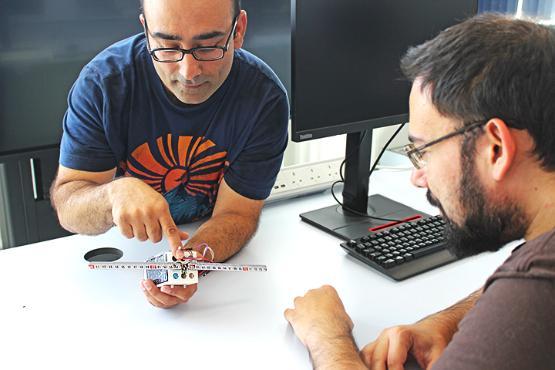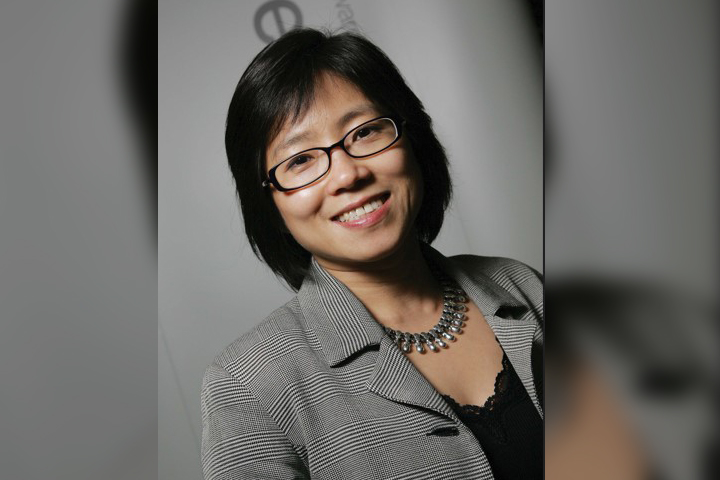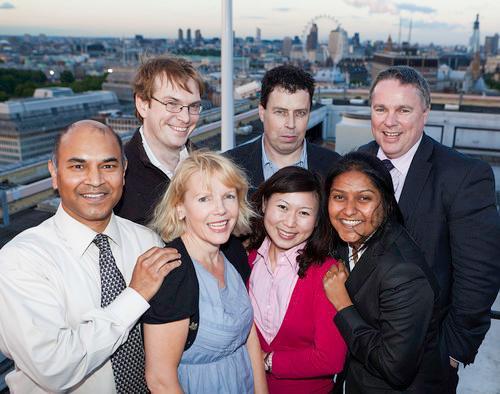Study with us
Satellites have been one of the government’s eight great technologies since 2010. It is one of the UK’s fastest growing sector and a vital part of the UK’s economy, with a projected annual income of over £16.4 billion and employing over 45,000 people in diverse and exciting roles as scientists, engineers, entrepreneurs and innovators in the UK. The global space economy is projected to grow to £490 billion by 2030.
The Bradford-Renduchintala Centre for Space AI offers a unique MSc Satellite Systems Engineering programme in response to the fast-growing satellite industry and the shortage of AI specialists in the space sector with the goal of equipping students with readily employable specialist knowledge and transferable skill sets needed to enhance their careers or to start a new career in the satellite/space industry.
MSc Satellite Systems Engineering
This cutting-edge MSc programme covers the three pillars of space & satellite systems: communications, earth observation, navigation, together with a unique module on artificial intelligence and distributed systems.
The programme is designed to address the skills shortage in the space/satellite sector. Graduates can pursue a range of job roles and career paths, including satellite systems engineer or technical support, teleccommunications engineer, earth observation and navigation, system analyst, AI technologist, or pursue a research career.
The MSc will be delivered by world-renowned technical experts. Students will benefit from state-of-the-art facilities at Bradford-Renduchintala Centre for Space AI to gain hands-on experience of constructing a pocketcube, and develop satellite tracking software modules.

Scholarships available
Scholarships worth up to £10,000 are available to eligible full-time UK/international students of the Satellite Systems Engineering MSc.
Academic Profile
Prof Fun Hu - Programme Leader
After completing her PhD degree at University of Bradford (UoB), Prof. Fun Hu worked as a Satellite Systems Engineer in a local satellite consultancy firm for a few years before pursuing her research and academic career. Since then, her research activities have always been associated with satellite communications systems, ranging from their integration with terrestrial communications systems to applications for transport systems. She was one of the two representatives at UoB to establish the European Satellite Network of Excellence (SatNEx) in 2004, alongside German Aerospace Centre and University of Surrey. Prof. Hu is the founder and Inaugural Director of the Bradford-Renduchintala Centre for Space AI, established through the generous gift from our alumus Dr Murthy Venkata Renduchintala.

Professor Fun Hu, Programme Leader for MSc Satellite Systems Engineering.
The University provided me with the educational foundation that allowed me to fulfill most of my professional dreams.
Dr Venkata Murthy Renduchintala, PhD (Digital Communication)
Student opportunities
Preparing for your career
This MSc programme opens up several career pathways such as satellite systems engineer, satellite communications engineer, communication engineer, AI technologist. You can also choose to pursue a research career.
Links with Industry
The Innovation and Skills Advisory Board (ISAB) of the Bradford-Renduchintala Centre for Space AI consists of industrial partners from 14 industrial and government organisations, which will provide further opportunities for placement as well as long term career opportunities.
Dedicated workshops with invited speakers from relevant industries drawing from ISAB will be held to inform students of potential employment opportunities from their companies. In addition, there are also seminar talks delivered by other satellite experts from different industrial companies or by professionals from other business sectors on innovation and entrepreneurship. All these are designed to help increase students’ employment prospects.
Satellite Applications
The programme is endorsed by the Satellite Applications Catapult. The Catapult will co-supervise up to two 3-6 month student placement(s) per annum to support the programme (cash contribution of up to £18k per annum, paid as stipend directly to the student). In addition, students from this programme will have access to the Catapult’s Internship programme, which will offer MSc graduates the opportunity to apply for a graduate placement at the Catapult for up to 18 months (up to £40k per annum, paid directly to the student).
Airbus
Airbus supports this MSc programme by co-supervising 2 – 3 MSc projects generated by Airbus. Student can either work on those projects at Airbus sites, subject to security clearance or remotely at Bradford.
Students working on these projects at Airbus sites can stay there up to 4 months. Up to two student stipends of £1000 per month per student are offered to selected students.
Alumni
Your relationship with Bradford doesn’t end at graduation as you join a community of more than 140,000 alumni spanning over 170 countries. Bradford alumni can access a range of services and opportunities to stay connected with the University and with one another. There are also many ways for Bradford alumni to get involved through volunteering to promote the University, inspire current students, and support our research and development projects.

